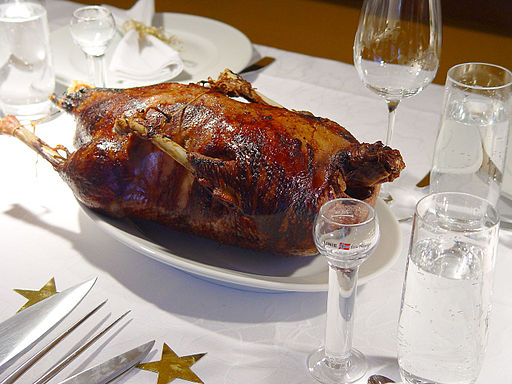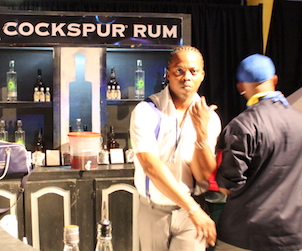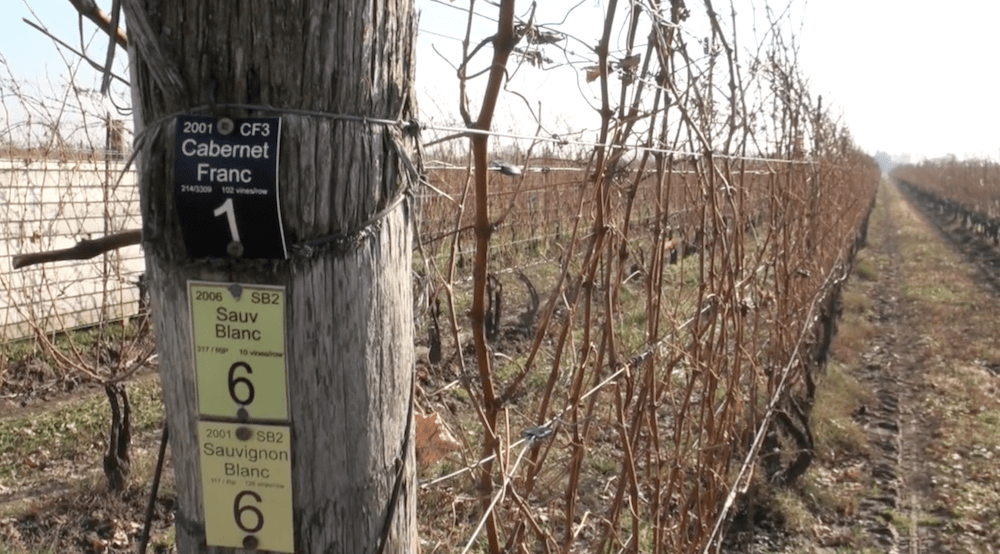By Brian Hall
“Christmas is coming and the goose is getting fat”
The smoke curls up from the chimney into the crisp winter air as you crunch through the snow up to the door of your dear friends’ home. The merry doorbell chimes remind you just how wonderful this traditional feast is. You think of all the fascinating guests you have met here over the years. Every December the table groans under the weight of festive foods and drink, yet even though the dinner with its centerpiece of roast goose is always sublime, it’s the other guests which make this annual gathering so exceptional.
The wreath-emblazoned door opens to the welcoming warmth of hearth and home. The smell of the yule log burning in the grate, the strategically positioned mistletoe above your head and the tankard of steaming mulled wine have a comforting timeless quality.
Drifting into the splendid dining room your name stands out in elegant calligraphy at your assigned place. Beside and across the table from you the cards for the expected guests read “Chuck D.” to your left, “Charlie D.” to your right and opposite the table from you is simply “Soc”.
The dinner chime rings out and your hosts begin to direct people to the table. The simple rustic setting belies an overall extravagant feeling. As the other guests start to settle in you know you are in for some real fun.
“Oh my, a finer feast than this I couldn’t have written myself, and I’m no slouch when it comes to that, if you know what I mean,” says the chap to your left, nudging you, as he takes his seat. To your right a bald headed gentleman with generous side-burns nods to you and says, “Chuck there surely does know a thing or two about it, you may have read his book, ‘A Christmas Carol’. May I introduce you to my friend Mr. Charles Dickens?”
Dickens looks jolly pleased and says, “Oh go on sir,” with a big smile. “I do have a few fictions to my name, but to return the favour, you might know of our slightly more famous Charles here, Mr. Darwin, he is a most erudite fellow with a few humdingers himself.”
“A pleasure to meet you, please pay no attention to that old kook! Please call me Charlie,” blushes Darwin as he deftly shifts the focus from himself to the man just sitting down across the table, “and may I introduce you to the esteemed Mr. Socrates here?”
He smiles warmly and bows his bearded face, “Thank you, so very happy to make your acquaintance.” His eyes widen as he admires the table, “Would you just look at this lovely spread we have here. I must admit I feel quite at home, nostalgic even. It’s really none too different from the celebrations my own people always enjoyed.”
Dickens perks up and asks, “My dear Soc, surely these modern trappings would be unfamiliar to your more ancient sensibilities, no?”
With a grand sweeping of his arm Socrates replies, “True, many things are different, take for example your lovely Tannenbaum here–”
Dickens interrupts, “The Christmas tree, one of Prince Albert’s German imports and contributions to modern culture.” Darwin leans close to you and whispers in your ear, “Queen Victoria’s husband, eh?”
“Dicky, you yourself sir,” Socrates enthusiastically continues as he points to Dickens, “have given these people many of their modern traditions of Christmas. With Mr. Scrooge’s splurging, you certainly popularised the turkey.”
Now it’s Darwin who breaks in with mock disdain, “Such a large and stupid bird, so easy to kill, no wonder that American import gets served at any opportunity!”
Socrates returns to the topic at hand, “Very true, but look at this traditional menu we have tonight and that exquisite roast goose — it would seem that some things have stayed true through the ages. I can assure you that our own mid-winter celebrations were no stranger to roast geese”.
“Ah yes,” agrees Darwin, “I have to concur. My own studies of the ancestry of domesticated animals showed that the venerable goose goes much further back than even our dear friend’s time, certainly into the ancient antiquities, easily back forty centuries.”
Dickens nods, “I understand that at Hanukkah too, the roast goose is part of those old world customs–”
Overhearing, a fellow a few places down the table whose name card reads “Rambam” turns his head and throws in his two cents, “–Enjoyed often for certain, but that’s a modern tradition I’m afraid!”
Socrates turns to him and raises his glass, “Oh my friend Maimonides, don’t burst his bubble!” and then turns back and continues. “Our oldest Bronze Age dinner guests too would have enjoyed goose on the plate for their solstice festivities.”
Just taking a bite of his pomegranate and mint salad, Dickens nearly drops his fork. “Solstice? Today is Christmas Day, the 25th of December, solstice was four days ago!” He glows with a proprietorial pride of the season, looking like a more svelte Father Christmas with his beard and comb-over.
Socrates sips his eggnog and muses, “Well as a matter of fact Chuck, the actual date of the shortest day of the year has not been as fixed through the ages as we might imagine. Back in those ancient days Charlie spoke about, calendars were not as clear-cut as they are today. Our ancient Greek winter traditions can be traced back to the times when the god Poseidon ruled the sea and during what now is called December, the seas were rough and boats and nets were brought to the safety of shore. Out of respect the entire month was named after the sea god, but the height of that month long celebration came on the shortest day of the year, called ‘Poseida’. Those revelers certainly enjoyed their goose as the focus of their banquet!”
Darwin is in agreement. “He’s quite right about the dates. If I recall correctly, the actual set date has quite an interesting twist. You might be surprised that the Roman Emperor, Julius Caesar, decreed In 46 BC with his new Julian calendar, that winter solstice should be celebrated not on the 21st, but on the 25th of December.”
Brandishing his glass for emphasis, Dickens’ surprise is apparent – as is his enjoyment of the drink. “Do go on, sir!”
“Yes, and it wasn’t until the 16th century that the calendar was reformed, moving the solstice back to the 21st of the month.”
Dickens defends his favourite festival, “Well I’ll take the modern Christmas anytime, after all since we’re talking about the goose, one of my favourite presents are those wonderful little delicately wrapped pots of goose grease!”
A now slightly tipsy Socrates responds, “My friend, we were no strangers to the healthy benefits of that goose grease. Since forever we’ve been using it to rub on the chest as a poultice to ease a heavy congestion or swallowed with a little honey to soothe a sore throat.”
Dickens bellows with laughter. “Talking as much as you do surely you know those benefits well!” Everyone smiles.
Just then the main course is served. The plates so beautifully arranged with a smorgasbord of rich giblet brown gravy, chestnut stuffing, redcurrant jelly, steamed vegetables, and crisp potatoes roasted in goose fat. And of course in the center the mouth-watering roast goose.
The convivial dinner conversation drifts through the ages as you and your fellow guests dig into the luscious feast. As you finish the last bite of Christmas goose you can’t help but think what delicious delight it is, served throughout the ages on cold midwinter nights, no matter what the name of the occasion.
As the warmth of such a wonderful time envelopes all your senses, you pause to wonder what surprises next year’s party will reveal.
 The intersection of the history and future of food is one of Brian’s passionate interests. He enjoys sharing old ideas and bringing back time-honored truths forgotten by our modern world. His background in teaching computers and technology to the novices of today (even the proverbial Grandma) gives him a special insight into ways of making complex ideas more understandable and ultimately more comfortable. Living in Toronto’s vibrant neighbourhood of Parkdale, he is presently working on a book entitled Computers For Grandmothers (And Everyone Else!): Never Blame Yourself and the 7 Golden Rules to Save Your Sanity. Thinking about the contemporary diet he has come to believe that: “The Future of Food is in the Past.” Feel free to contact Brian: historiedfood@doctorhow.com and follow @HistoriedFood on twitter
The intersection of the history and future of food is one of Brian’s passionate interests. He enjoys sharing old ideas and bringing back time-honored truths forgotten by our modern world. His background in teaching computers and technology to the novices of today (even the proverbial Grandma) gives him a special insight into ways of making complex ideas more understandable and ultimately more comfortable. Living in Toronto’s vibrant neighbourhood of Parkdale, he is presently working on a book entitled Computers For Grandmothers (And Everyone Else!): Never Blame Yourself and the 7 Golden Rules to Save Your Sanity. Thinking about the contemporary diet he has come to believe that: “The Future of Food is in the Past.” Feel free to contact Brian: historiedfood@doctorhow.com and follow @HistoriedFood on twitter








Awesome article!
Such a creative piece. And a quick history lesson. Made me smile all the warm through.
I loved this Christmas story. Nice combination of history, food and humor.
What a wonderful story to read. To think that birds through the ages have always served us during our time of feast. I often wonder if the answers to our hunger lie in the past and not in the lab.
Brilliant..sublime…I felt my own presence at the dinner table!
The pomegranate and mint salad- perfection! Great story Brian. I wanted it to go on; surely you could work Geronimo and Elvis in there somewhere. Thanks for sharing and congratulations on getting your work published. Let’s hope it’s the first of many.
Lovely Piece! Really felt like I was there!
The use of dialogue between the dinner guests really brought the piece alive. I felt like I was right there at the table immersed in the conversation.
Well done! A wonderful piece.